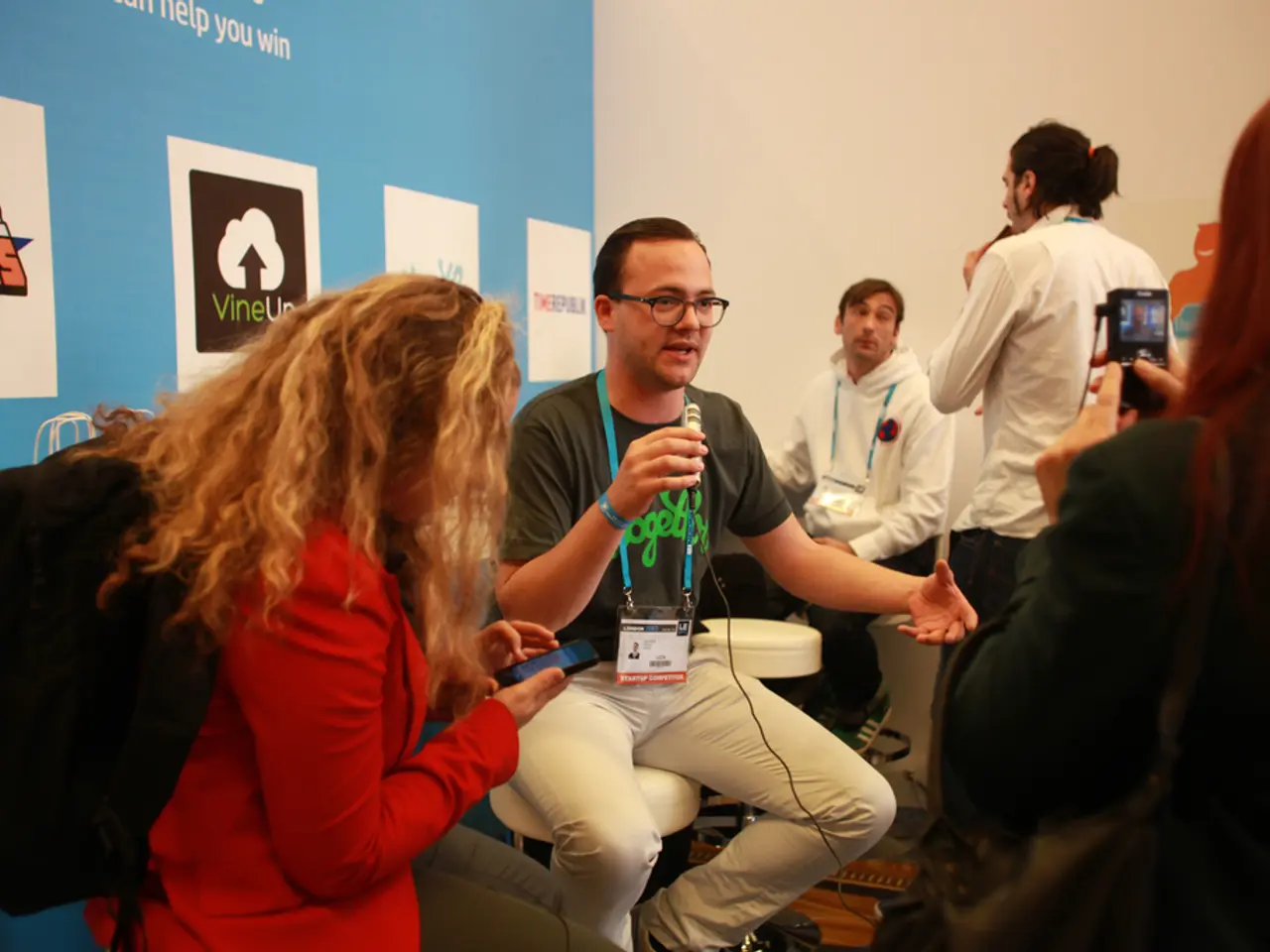AI's Role in Hiring Processes: Revolutionizing Talent Sourcing
=========================================================
The recruitment industry is undergoing a significant evolution due to the advent of artificial intelligence (AI). AI is transforming the landscape, helping ensure that every voice is heard and steering towards a more inclusive hiring process.
Artificial intelligence is making recruitment more efficient by automating routine tasks, enhancing candidate experience, promoting diversity, and enabling data-driven hiring decisions while preserving the human element in final judgments.
AI improves candidate experience by handling real-time inquiries, providing application updates, and automating scheduling. Conversational AI chatbots engage candidates 24/7, helping to speed up screening and interview coordination, making the process smoother and more transparent for applicants. AI-driven video interviews provide timely feedback and use consistent criteria to assess communication skills and cultural fit, improving candidate engagement and clarity on performance.
To promote diversity and reduce bias, AI anonymizes resumes by removing names, photos, and demographic details, focusing solely on qualifications and skills. It enforces uniform testing and interview conditions for all candidates, thus mitigating subjective interviewer biases. AI algorithms benchmark candidates against success profiles using neutral linguistic and behavioral analysis, aiming for a merit-based evaluation regardless of gender, ethnicity, or background.
For data-driven decisions, AI analyzes large volumes of resumes and historical employee success patterns to identify subtle predictive indicators that human recruiters might miss. It automates resume screening and ranks candidates using complex criteria beyond simple keyword matching, significantly saving recruiter time and costs. AI tools help organize and transcribe interview data to highlight relevant responses and flag potential biases, supporting recruiters to make informed final selections while maintaining a human judgment layer.
The approach integrates AI for efficiency and consistency in early recruitment stages, while humans focus on nuanced assessments such as cultural fit and final hiring decisions. This human+AI collaboration keeps the recruitment process both scalable and personal.
The future of recruitment lies in finding a balance between tech-driven efficiency and authentic human connection. It's crucial to reflect on how to leverage AI to enhance work without letting it overshadow the human experience that lies at the heart of recruitment. AI should be viewed as a tool that empowers recruiters, not as a replacement.
Maintaining a human touch in AI recruitment involves genuinely engaging with candidates, asking insightful questions, and actively listening to their stories. AI can extract meaningful insights from large volumes of data, helping recruiters identify trends and behaviors within the job market. It can fill communication gaps in recruitment by providing consistent updates and serving as a means of pre-screening.
Candidates can benefit from AI-powered recruitment through timely feedback, personalized user experiences, and tailored job recommendations. Recruitment now extends beyond matching skills to job descriptions, focusing on crafting a cultural fit, appreciating what drives candidates, and utilizing data to make informed choices.
AI-powered tools can help remove biases from the recruitment process, promoting a more equitable landscape for all applicants. By reshaping the future of recruitment, AI has the potential to foster innovation and creativity within organizations, ensuring that every voice is heard and that data steers towards a more inclusive hiring process.
- The advent of artificial intelligence (AI) in the recruitment industry aims to steer towards a more inclusive hiring process,, pushing for diversity and reducing bias in the process.
- AI technology is transforming the recruitment landscape, helping ensure that every voice is heard and promoting diversity by employing anonymized resumes and uniform testing conditions.
- The integration of AI systems in recruitment innovations is making the process more efficient by automating routine tasks, providing real-time updates, and promoting data-driven hiring decisions.
- AI solutions are improving candidate experience by handling inquiries, automating scheduling, and providing AI-driven video interviews that offer timely feedback and consistent criteria for assessments.
- In a smart business environment, careers increasingly incorporate the use of artificial intelligence for efficient recruitment solutions, boosting productivity and encouraging a more equitable hiring process.
- The integration of AI in the recruitment process is not meant to replace human judgment but instead to empower recruiters by analyzing large volumes of data and filling communication gaps, enabling informed decisions.
- AI-powered recruitment tools promote diversity and foster innovation within organizations by reshaping the hiring process, ensuring that every voice is heard and that data steers towards a more inclusive hiring process, thereby driving innovation at the heart of businesses.




